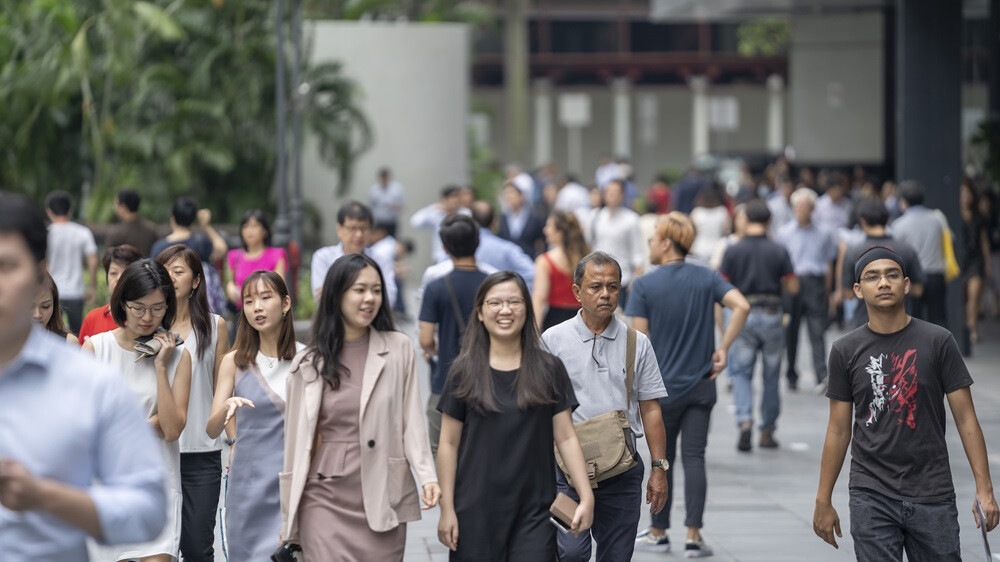
Singapore faces a significant challenge in its aging society, but Tan Hee Teck, President of the Singapore National Employers Federation (SNEF), has called for bold and systematic measures to turn this into an opportunity.
In his May Day message, Mr. Tan acknowledged that in many countries, an aging workforce has led to a slowdown in economic growth. However, he expressed confidence that by adopting progressive employment practices that provide more opportunities for older workers and enhance the resilience of the overall workforce, "Singapore can be an exception."
A key initiative in this effort is the Tripartite Workgroup on Older Workers, slated to launch in the second half of this year. This workgroup will bring together unions, employers, and the government to explore ways to enhance the employability of older workers. As a first step, the Alliance for Action on Empowering Multi-Stage Careers for Mature Workers will be established to engage employers in finding solutions to improve jobs to meet the evolving needs of older workers.
Mr. Tan emphasized that enabling longer and more flexible career pathways will be crucial for maintaining economic competitiveness. "As employers, we must also be responsive to the changing profiles and aspirations of our workers," he said, noting the growing importance of inclusivity and flexibility in the workplace.
He also reaffirmed SNEF's role in fostering progressive and fair workplace cultures. This includes contributing to key policy initiatives such as the Tripartite Guidelines on Flexible Work Arrangements Requests, which took effect on December 1, 2024. These guidelines provide a formal process for both office and non-office workers to request flexible work arrangements.
"While the business community initially had reservations about these guidelines, our collective efforts have shown that we can find balanced and practical ways to implement them," Mr. Tan said.
Meanwhile, Mr. Tan struck a cautious note amid global headwinds, including persistent geopolitical tensions and rising protectionism. As part of the national task force addressing the impact of US tariffs, he urged employers to rethink productivity strategies and prepare for continued uncertainty.
Changes in the labor market are also accelerating, with more workers voluntarily pursuing gig, freelance, and micro jobs. Mr. Tan warned that this trend could strain the supply of skilled labor. To maintain competitiveness, he encouraged companies to drive innovation and leverage the global talent pool to complement the local workforce and support business transformation.
Regarding Artificial Intelligence (AI), Mr. Tan acknowledged the job displacement concerns felt by many workers. However, he stressed that this outlook does not necessarily have to be pessimistic. He urged employers to proactively adopt and invest in AI, a technology that enhances productivity and streamlines processes, stating that the reality for employers can be much more optimistic.
"Through our collective efforts, we can successfully navigate the storms ahead and ensure that Singapore continues on a pro-business and pro-worker trajectory," The Straits Times reported Mr. Tan as saying.
Singapore's aging population issue has already reached a serious level, impacting various aspects of the economy. The government has already implemented policies such as raising the retirement and re-employment ages to encourage the labor force participation of older workers.
In addition, Singapore supports various education and training programs to enhance the job skills of older workers and encourages companies to create age-friendly work environments and redesign jobs.
In recent years, Singapore's birth rate has continued to decline, further deepening concerns about the future labor supply. Although the government is implementing policies to encourage childbirth, the entry into an aging society is inevitable.
In this context, the SNEF's proposals are timely and can be seen as demonstrating Singapore's proactive efforts to transform the aging society not just as a burden but as a new engine for growth. Through various measures such as promoting flexible work, supporting the retraining and job transition of older workers, and improving productivity through the use of technology, Singapore is expected to pursue continuous economic growth even in an aging society.
[Copyright (c) Global Economic Times. All Rights Reserved.]






























